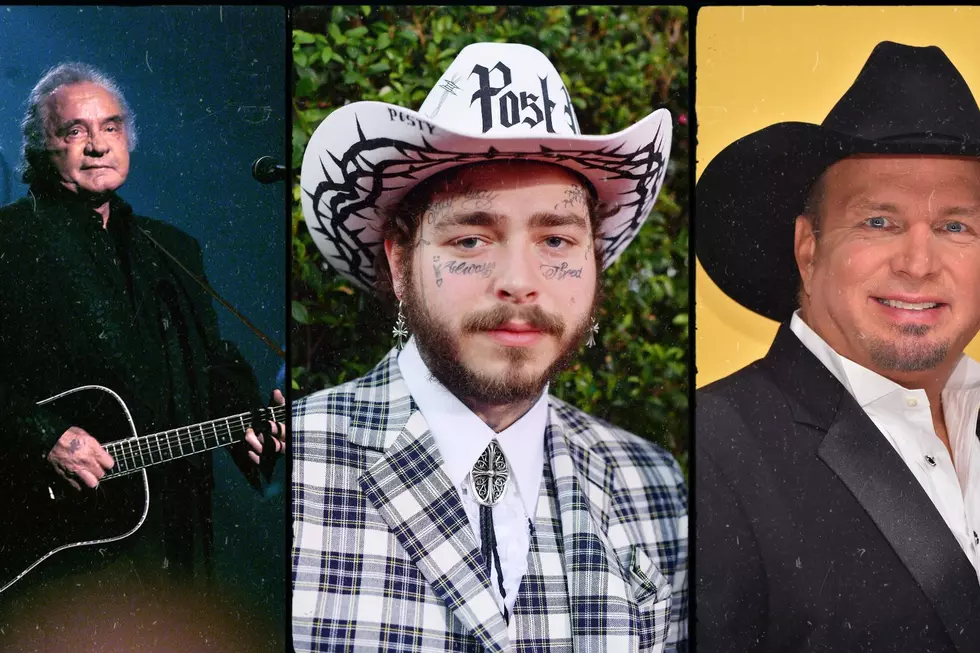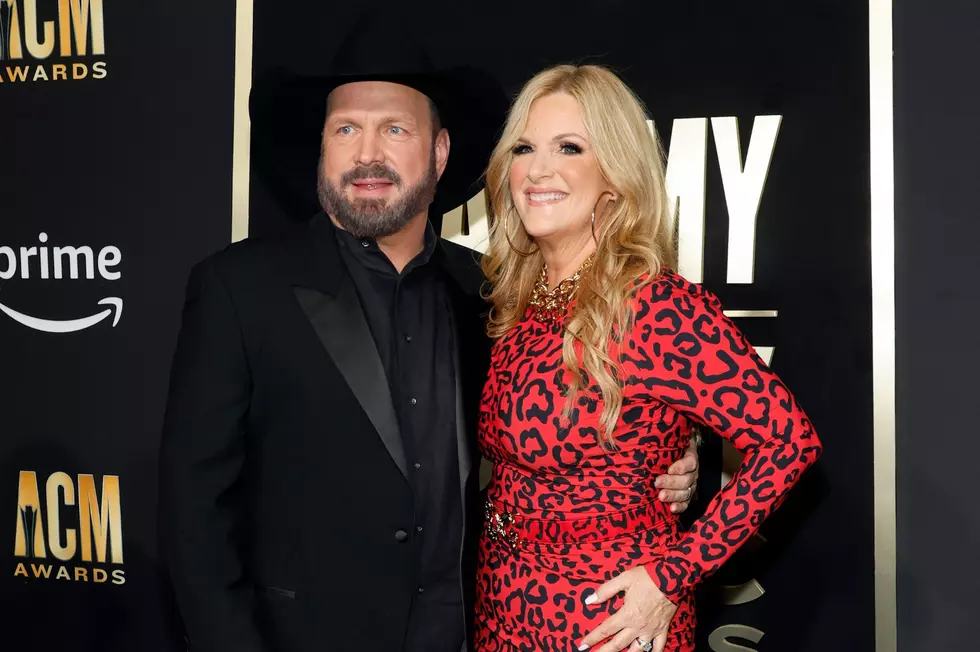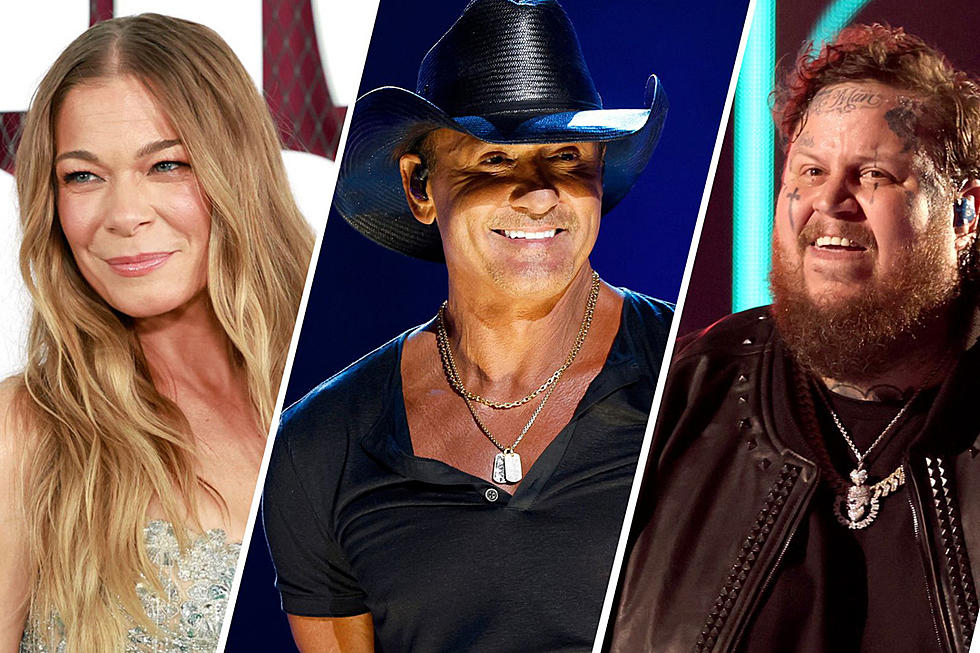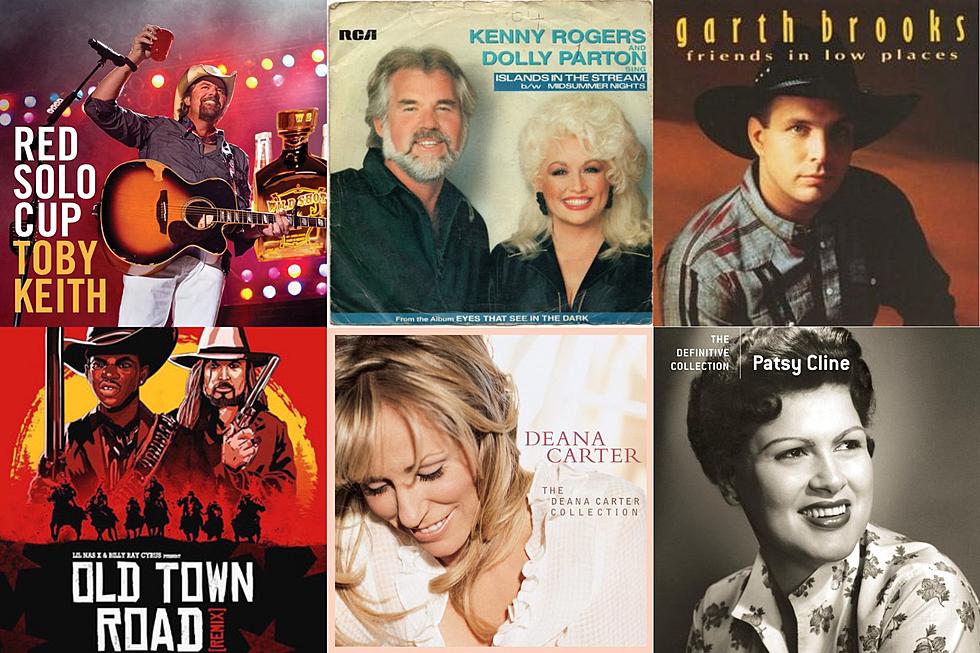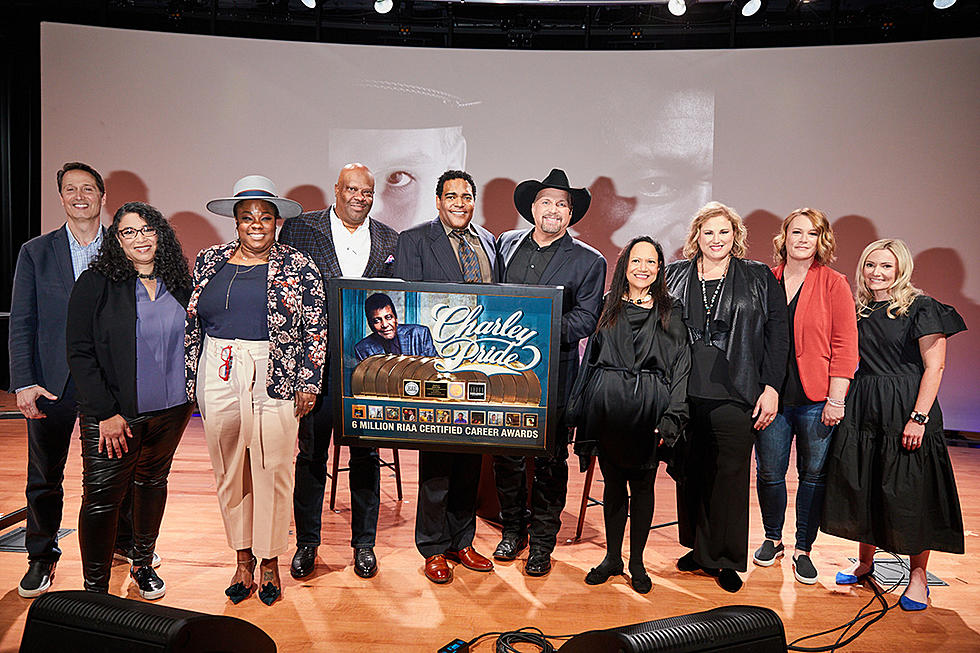
Garth Brooks Honors Charley Pride With RIAA Lifetime Achievement Award: ‘Charley Pride Was Love’
When Garth Brooks entered the room at the National Museum of African American Music on Monday night (Oct. 25), he quickly made it clear what was in his heart: love and admiration for the legendary Charley Pride, who was being posthumously honored with the RIAA Lifetime Achievement Award.
"For me, Charley Pride was all about love,” Brooks professed. “Hear the love in the voice and the admiration for an artist for another artist, for a dad for another dad, and for a bad baseball player for a good baseball player,” Brooks added, his last comment drawing a chuckle from the crowd gathered inside the downtown Nashville institution's Roots Theatre.
Pride died in December, at the age of 86, due to complications of COVID-19, leaving behind an enduring legacy that goes beyond musical accomplishments such as 30 No. 1 hits, three Grammy and CMA Awards and a pair of Lifetime Achievement Awards, one from each institution, to match. In his place, Pride's son Dion was on hand to accept his father's RIAA Lifetime Achievement Award.
"All his accomplishments are, to me, a byproduct of the sheer love that he had for country music. He loved what he did, and these were the byproducts of that,” Dion Pride remarked. “For me, as his son, I'm more impressed with the man. My father was a great man, and all of his values, all of his principles, will live, and they live through me.”
When Brooks was growing up in Oklahoma, Pride was the soundtrack of his childhood, thanks in part to his mother, singer Colleen Carroll, who was an avid fan. Songs such as “Kiss an Angel Good Mornin’” and “Someone Loves You Honey” "would make my mom cry all the time,” Brooks shared with Taste of Country, The Boot and other media in a pre-show interview.
“It’s funny, when you listen to his vocal and you hear me as an artist sing, he's all in it. I'm amazed how much he's in it,” Brooks added, before sitting down for a roughly 45-minute conversation moderated by Alice Randall, a professor at Vanderbilt University and the author of the best-selling books The Wind Done Gone and Soul Food Love. A songwriter in her own right, Randall was the first Black woman to co-write a country No. 1 song (Trisha Yearwood’s “XXX's and OOO's (An American Girl)” in 1994).
When asked to describe Pride in one word, among the first that came to mind was “courage.”
"I think everybody, your biggest enemy, your biggest adversary you're going to face in your life is yourself. Charley Pride had that problem, I'm sure, but after Charley Pride got past that problem, there was another wall he was facing that guys like me did not have,” Brooks explained, referencing the racial barriers Pride faced as a Black man in country music in the 1960s on his way to becoming the first Black artist to be nominated for a country Grammy in 1966 and the first Black artist to win CMA Entertainer of the Year in 1971.
"It didn't matter that Charley Pride was Black. It mattered so much that Charley Pride was Black,” Brooks continued, emphasizing the importance of having both statements side by side. “In the places where it shouldn't have mattered, it didn't, and when it should've mattered, this man was the most proudest of that, and that’s among many things that made me love him and made me want to be more like Charley Pride.”
Throughout his conversation with Randall and his thoughtful remarks on Pride's impact, Brooks wove in bite-sized covers of some of Pride’s beloved numbers: He offered impromptu renditions of gems such as “Roll on Mississippi,” joking that his voice doesn’t have the capability to replicate Pride’s smooth baritone, and "Mountain of Love," which he admitted to singing into a hairbrush in his pre-fame days. His comments were subtle examples of Brooks’ lifelong admiration for the icon with whom he’d one day form a friendship.
As Brooks and Pride were often seated together at the annual Country Music Hall of Fame induction ceremony, their interactions further solidified Brooks’ love for the man behind the music, whether Pride was singing one of Brooks' songs or remembering Brooks’ birthday and astrological sign. “He was one of those guys that would always touch you. We'd be sitting there and he'd go, 'I went to work for her that summer ...’ And I'm like, ‘Charley Pride's singing something that I had something to do with,'" Brooks recalled.
The two continued to make memories when recording “Where the Cross Don’t Burn,” a duet from Brooks’ 2020 album Fun, released just weeks before Pride’s death. Brooks "loved" the song for a decade and knew he wanted Pride to sing it with him, but he didn't get around to asking until after reading a false report that Pride has died. After learning the rumor was untrue, Brooks says he immediately picked up the phone and asked his idol to be part of the song. Brooks flew to Arlington, Texas, where Pride was living at the time, to be in the studio when Pride laid down his vocals for the collaboration.
"It was cool, because when he stepped up to the mic, it brings back all those things as a kid,” Brooks expressed. "What I love about that song is it starts out as 'a white boy and a Black old man,' and by the time you get to the end, it's just 'a young boy and a kind old man.' It's the progression of love, where love gets you past the differences and focuses on what you have in common.”
Referring to Pride as a “unifier,” Brooks explained that he believes that at the core of Pride’s legacy is the love he carried through his music, passion for baseball and how he engaged with everyone he met. Randall also offered her perspective of Pride as a unifier, sharing a particular comment she's repeatedly heard that simultaneously proves the power of Pride’s music.
“One of the things I've had happen is have more than half a dozen white people come up to me at different times and say, 'I thought I hated all Black people until I realized I loved Charley Pride,' and that his music, loving his music, was a way in to thinking and in respecting Black people," Randall said. "That's one of the hard things people told me: His music is a bridge to people who saw color and people who didn't see color.
"No one is centered more in Black country than Charley Pride," she added, "because he was exclusively country and he influenced so many other artists.”
As one of those artists profoundly inspired by Pride, Brooks hopes that future generations will not only connect with Pride’s music, but lead with love, as he did.
"I don’t care if they're white, I don’t care if they're Black, transgender, I don’t care what their religion is — I want people that love country music like this guy did,” Brooks proclaimed. "Love is what the next generation needs to know.
"Charley Pride was love," Brooks added. "... It's very sweet to have people like that in your life, and you want those people in your life. So the best way that all of us could take Charley Pride's name forward is to love one another.”
Remembering Charley Pride + More Country Stars Who Died in 2020:
More From Taste of Country
